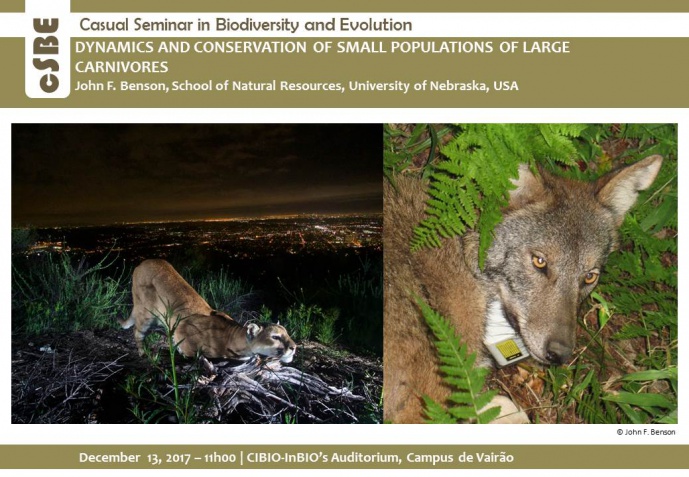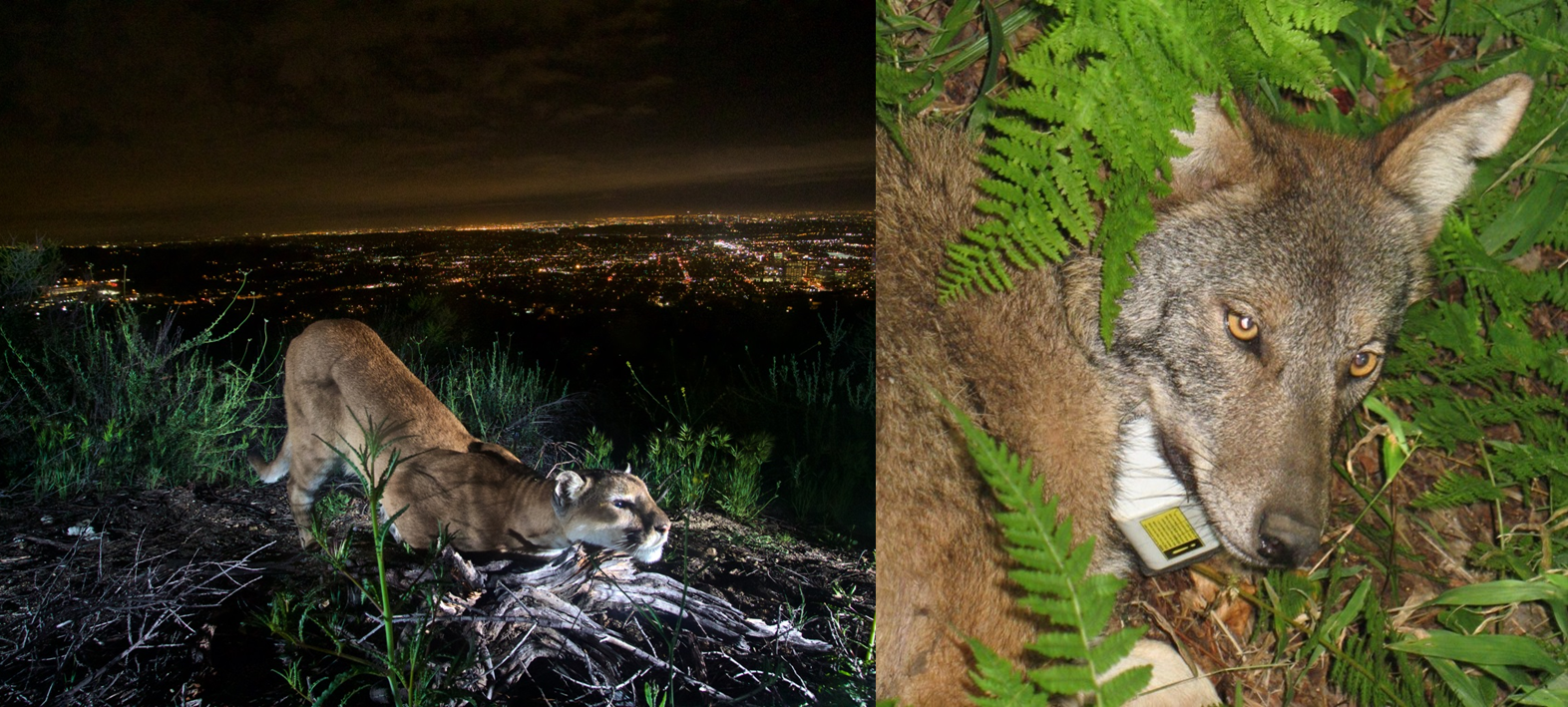DYNAMICS AND CONSERVATION OF SMALL POPULATIONS OF LARGE CARNIVORES

CASUAL SEMINAR IN BIODIVERSITY AND EVOLUTION

The global decline of large carnivores has resulted in many small, isolated populations that are threatened by a combination of demographic and genetic processes in human-dominated landscapes. My colleagues and I are conducting basic and applied research to understand the dynamics of threatened populations of top predators in North America. First, we are investigating hybridization dynamics of wolves and coyotes in Ontario, Canada with special focus on conservation implications for the federally-threatened eastern wolf. Our research has quantified the spatial genetic structure, morphology, demography, and behavior of canids in this unique 3-species hybrid zone. Source-sink dynamics driven by interactions between genotype-specific fitness, human disturbance, and behavior structure the Canis hybrid zone and appear to limit eastern wolf abundance and distribution. Second, we are studying mountain lions within the Los Angeles metropolitan area in California to elucidate demographic and genetic factors threatening this small, isolated population. Our modeling provides a rare demonstration of the central tenet of the extinction vortex and highlights the importance of restoring connectivity to fragmented landscapes to facilitate persistence of top predators. Our work has direct implications for conserving large carnivores and seeks to contribute broadly to a greater understanding of interactions between demography and genetics in small populations.
John F. Benson, Ph.D. is currently an assistant professor of Vertebrate Ecology at the School of Natural Resources, University of Nebraska-Lincoln, USA. His main research has been in demographic and spatial modeling applied to ecology and conservation, particularly focused on hybridization dynamics, predator-prey interactions, modeling of spatial and population dynamics of wild populations occurring in human-impacted environments and population viability analysis. John Benson is currently co-supervisor, together with Francisco Álvares (CONGEN/CIBIO-InBIO), in the master thesis of Rafael Campos (MBGE; 2017/2018), entitled: “Integrating demographic and genetic data to model population viability in Iberian wolves”.
[Host: Francisco Álvares, Conservation Genetics and Wildlife Management]
Image credits: John F. Benson